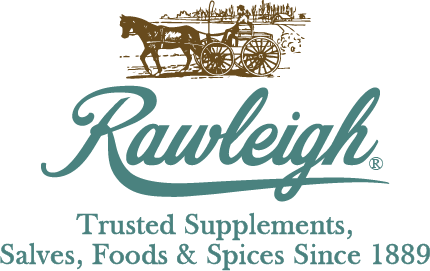How to Train Your Brain to Remain Active?
The brain is the control center of the human body. It allows us to be who we are in various settings, including home, workplaces, social gatherings, and unknown surroundings. The brain’s development starts as the birth of a child takes place. As the infant grows, the brain explores multiple stages of growth, affecting the person’s behavior, perception, and ability to opt for a direction in life. If you want to know how to train your brain to remain active, this read can help you understand the process of brain development. It will also guide you on a few activities that may support an active brain function.
Understanding Brain Development - The Phases
Brain development is a complex process that involves multiple phases based on how old a person gets. We have covered the most important phases (age-wise) to give you an idea of the brain development process.
The Infancy Phase
When babies are born, their brains are sponge-like structures, ready to soak up information from their surroundings. They absorb information from those spending more time with them (for instance, parents, siblings, etc. ). In the first year, the brain of a baby can learn any language depending on where they live, the signs they see, and the sounds they hear. During this phase, the neuron synapses take place in a massive capacity.
The Childhood (2-10 years) Phase
Once the baby is eighteen months old, their brain enters the learning phase, focusing on valuable connections and phasing out the unused ones. At this stage, more inhibitory connections take place in the brain to help it prioritize certain experiences. Children learn to process emotions, develop social interactions, and explore communication skills to be a relevant unit of society. Since the brain undergoes many connection-building activities in this phase, children are highly sensitive to how their caregivers interact with them.
The Adolescence (10-19 years) Phase
The adolescence phase brings dynamic changes to the brain. During this phase, teens learn to process emotions, motivations, and personal experiences. They learn to be away from their home’s safety. Moreover, the brain develops such that emotional connection, rewarding processes, and the ability to take risks take over individuals.
The Young Adulthood (20-39 years) Phase
The young adulthood phase is the most practical one in terms of how individuals analyze and utilize their abilities. During this time, the brain becomes mature, with white matter increasing. Individuals can process information much faster and adopt rational thinking by keeping the consequences of their actions in view.
Beyond Young Adulthood (40 and Over)
As individuals enter their forties, their brain relies on adaptability and depends on the habits and living practices of individuals. The brain, in this stage, works more strategically than ever, and the effects target long-term periods.
Effective Methods to Keep the Brain Active
The above factors shed light on brain development through different stages of life. As an adult, you may adopt the following practices to keep your brain active.
Try Putting Puzzle Pieces Together
If you have known puzzle games for children only, there is much more to know. Puzzle pieces can help you keep your brain active. When aiming to be brain-efficient, you may focus on solving different types of puzzles to strengthen your brain. Putting puzzle pieces together allows your brain to think analytically and direct your decisions on the puzzle board. Such activities may help you in the early and adult stages alike.
A good approach is to try different puzzle pieces every time. When you explore new challenges, your brain takes part in the decision-making process actively.
Play Card Games
Card games can be fun when you put them to good use. Fortunately, your brain can benefit much from card games. If you want to boost your brain’s activity, playing card games with your family or friends can be a good way of revitalizing your brain. The truth behind card games is that they allow multiple regions of your brain to take part in the thinking process. It is one of the reasons pro players in card games are great analytical thinkers in other parts of their lives.
Some good card games for healthy brain activity include solitaire, poker, crazy eights, hearts, and bridge. You can play other games too if you like.
Build Vocabulary
Learning vocabulary may be an ideal solution to becoming a good reader and writer. However, a lot of people are unaware of how building vocabulary stimulates their brains. When aiming to keep your brain active, vocabulary exercises can help you challenge your brain to process new information. Learning new words can positively influence your auditory and visual memory. Seeking help from a healthcare expert can benefit you in understanding how new information stimulates brain function.
You can opt for any vocabulary-building exercise based on your preferences. While true, we recommend alternating different practices for healthier brain development.
Use Cognitive Enhancers
Cognitive enhancers are natural supplements focused on healthy brain function. Reputable supplements like Cognidyn and Ashwagandha can be highly fruitful in this regard. Taking prescribed doses of these supplements can boost your brain’s activity and help you enhance focus in your daily activities. Moreover, these supplements can help you improve nerve-cell communication in the brain.
When planning to use cognitive enhancers, you may thoroughly check your health history and be aware of your allergies. Some supplements may be unsuitable for all types of users. Seeking your doctor’s help can be highly beneficial in this process. They can help you pick suitable options in the market.
The Takeaway
The above information highlights how to train your brain to remain active. We have covered the different phases of brain development in humans, from infancy to adulthood, to give you an idea of how your brain functions. Additionally, you can go through the vital tips to support your brain’s activity through various activities, like putting puzzle pieces together, playing card games, building vocabulary, and using cognitive enhancers (supplements).
If you have more brain-related concerns, we suggest reaching out to your healthcare provider and sharing your thoughts.
*These statements have not been evaluated by the Food and Drug Administration. This product is not intended to diagnose, treat, cure or prevent any disease. It is recommended that a physician be consulted before taking any supplements. Results not typical and may vary.

